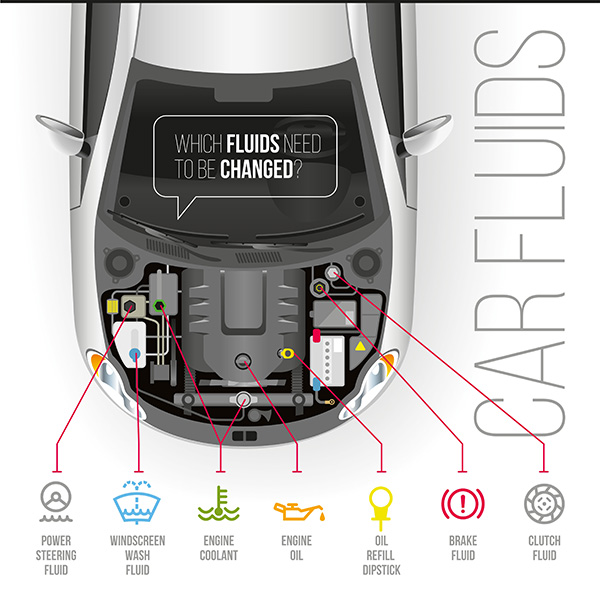
Your vehicle is more than just metal and mechanics—it relies on a network of fluids to function properly. These fluids don’t just help the engine run but also cool, lubricate, clean, and protect essential components from wear and damage. Skipping fluid maintenance or ignoring low levels can lead to major problems down the road.
Here are five essential fluids every driver should know about—and why they are important.
Engine Oil
Engine oil keeps everything inside your engine moving freely and at the right temperature. It reduces friction between components, helps manage heat, and prevents premature wear. But as the miles add up, oil collects dirt, metal particles, and other debris that reduce its effectiveness.
If the oil gets too dirty or the level drops too low, your engine won’t be protected the way it should be. That can lead to higher operating temperatures, rough performance, or even serious engine damage if left unchecked. Regular oil changes are one of the simplest ways to keep your car running reliably.
Coolant (Antifreeze)
Coolant, also known as antifreeze, regulates your engine’s temperature by circulating through the engine and radiator. It prevents overheating in hot weather and protects against freezing in colder conditions. Coolant also guards against corrosion and scale buildup inside the cooling system.
If coolant levels drop or the mixture becomes too old, your engine could overheat—especially during long drives or in stop-and-go traffic.
Brake Fluid
Brake fluid is essential for transferring the pressure you apply on the brake pedal into stopping power at the wheels. It works within a closed hydraulic system and needs to maintain the correct viscosity and condition to function safely. Over time, brake fluid can absorb moisture, which reduces its effectiveness and raises the risk of brake fade or failure.
Soft or spongy brakes may be a sign that the fluid is contaminated or too low.
Transmission Fluid
Transmission fluid lubricates gears and other moving parts within the transmission. In vehicles with an automatic gearbox, it also acts as a hydraulic fluid, helping the system shift smoothly between gears. Old or low transmission fluid can cause rough shifting, slipping, or hesitation—none of which are good for your car’s long-term health.
Routine fluid checks and changes can help prevent costly transmission repairs down the line.
Power Steering Fluid
Power steering fluid allows you to turn the steering wheel with ease. It provides the hydraulic force needed for power-assisted steering systems. When this fluid runs low or becomes dirty, you might notice stiff or noisy steering, especially at lower speeds or when parking.
Keeping the system clean and topped off helps ensure responsive handling and smooth control.
Loyola Marina Auto Care – Fluid Service Specialists in Westchester, CA
At Loyola Marina Auto Care in Westchester, CA, we know how important these fluids are to the overall health of your car. Whether you need a quick check, a fluid top-off, or a full system flush, our team is here to help keep everything flowing as it should. Stop by today for a fluid inspection and keep your vehicle running at its best.